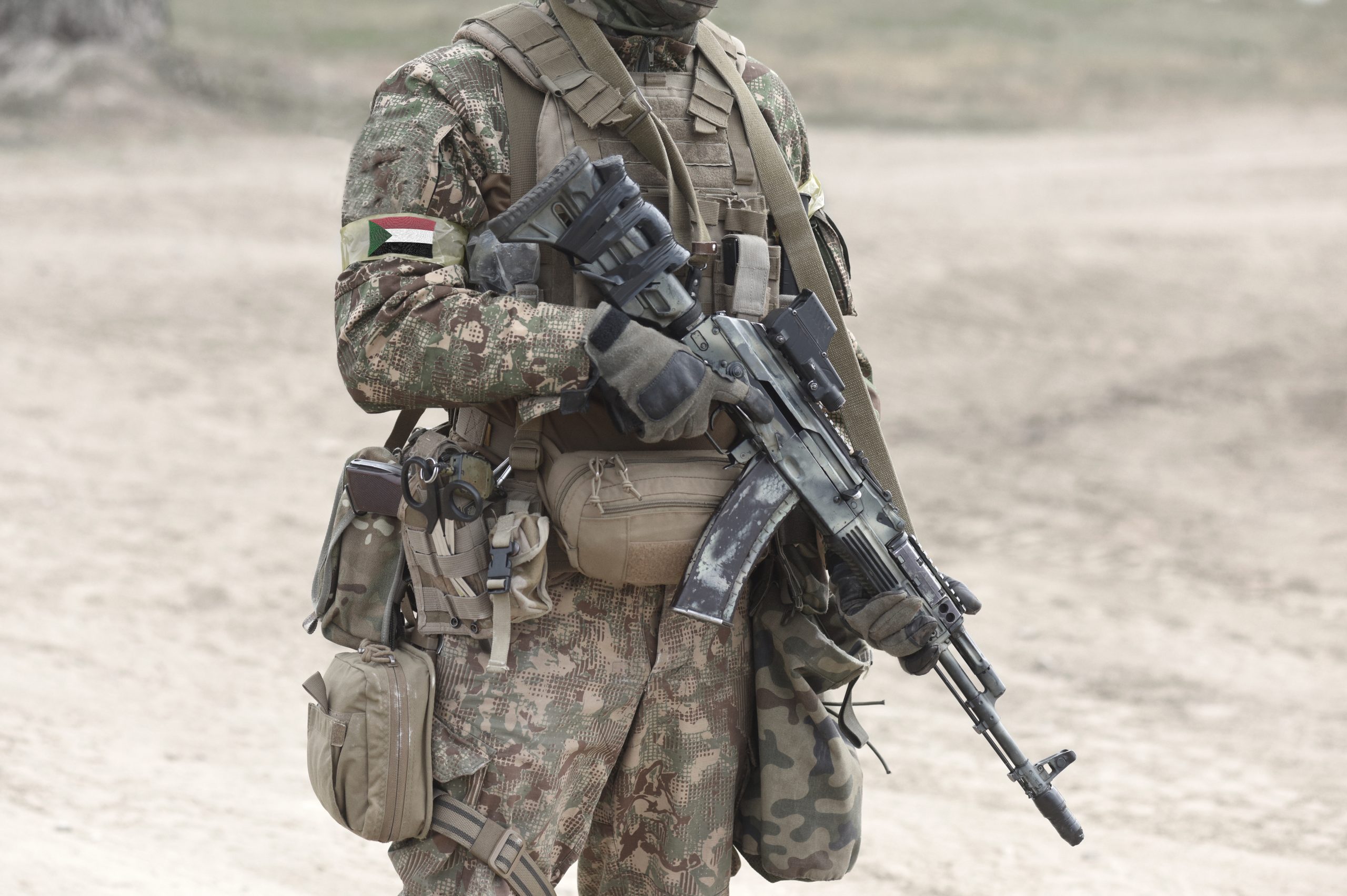The UN announced the discovery of a mass grave of dozens of bodies allegedly killed by the RSF and its allies in West Darfur.
Qatar has welcomed a final statement issued by a summit bringing together Sudan’s neighbouring countries in Cairo on Saturday, as the deadly conflict entered its fourth month.
The Gulf state’s foreign ministry described the final communique as “an important step within the regional and international efforts to stop the fighting” in Sudan, expressing its appreciation for Egypt’s efforts.
“The ministry also expresses the hope of the State of Qatar that the outcomes of this summit and other good offices will pave the way for a permanent cessation of the military conflict. In addition, this will hopefully lead to broad negotiations, in which all Sudanese political forces will participate,” the Qatari statement added.
Egypt brought together Sudan’s neighbouring countries -Ethiopia, South Sudan, Chad, Eritrea, the Central African Republic and Libya – in a summit on Thursday, during which the participating parties agreed on a new Egyptian-led initiative aimed at ending Sudan’s deadliest conflict in years.
Egypt’s President Abdel Fattah El Sisi announced the initiative during the event, which comes months after multiple mediation efforts led by Saudi Arabia and the United States. The Egyptian president called for talks between the neighbouring countries in Chad.
However, experts on Sudan offered a bleak view on the latest Egyptian efforts, citing previous unsuccessful mediation efforts and many collapsed ceasefires.
The warring Sudanese military and paramilitary Rapid Support Forces (RSF) had already signed a similar agreement during a meeting in Jeddah in May, though it quickly collapsed as fighting intensified on the ground.
Sudan has witnessed at least 10 failed ceasefires since the conflict broke out on 15 April this year, in which at least 3,000 people have been killed.
However, government sources told AFP on Saturday that Sudanese army representatives reportedly returned to Saudi Arabia for talks with the RSF.
“A delegation of the armed forces has returned to Jeddah to resume negotiations with Rapid Support Forces (RSF) rebels,” a government source told the French news agency.
The deadly conflict has forced more than 2.4 million people to flee their homes, per figures by the United Nations’ International Organization for Migration (IMO).
Qatar had pledged $50 million to support the UN’s humanitarian response plan as well as a regional refugee plan for Sudan during a donor conference in Geneva, which gathered a total of $1.5 billion to help those on the ground.
The Gulf state also launched an air bridge and its first evacuation flight in May that carried holders of the Qatari residency to safety. So far, the Gulf state has safely airlifted 1,855 people from Sudan since the launch of the evacuation flights, per figures shared by the foreign ministry on 22 June.
Mass grave in Darfur
Sudan has been grappling with a fragile path to democracy since the military’s overthrow of long-time ruler Omar Al Bashir during a revolution that erupted in 2019.
In August 2019, four months into the Sudanese uprising, military leaders signed a power-sharing agreement with the Forces of Freedom and Change (FFC) to form a Sovereign Council.
However, the latest spate of violence has hindered Sudan’s path towards civilian rule as both sides continue to engage in a deadly conflict that has turned the capital Khartoum into a battleground.
More disturbing details emerged last week after the UN announced the discovery of a mass grave of dozens of bodies allegedly killed by the RSF and its allies in West Darfur, one of the main sites of the conflict.
The International Criminal Court’s (ICC) prosecutor Karim Khan said on Thursday that the body is investigating new war crimes and crimes against humanity in the region, the Associated Press reported.
The announcement came days after Human Rights Watch (HRW) called on the court to investigate new war crimes in Darfur.
“We are by any analysis not on the precipice of a human catastrophe but in the very midst of one,” Khan said, adding that the court is also investigating claims of extrajudicial killings.
Martin Griffiths, UN Under-Secretary-General for Humanitarian Affairs and Emergency Relief Coordinator, expressed on Saturday fears of the “resurgence of ethnic killings in the region”.
“Each day the fighting continues, the misery deepens for Sudanese civilians[…]We must all redouble our efforts to ensure that the conflict in Sudan does not spiral into a brutal and interminable civil war with grave consequences for the region,” the UN official said in response to the latest harrowing discovery.
The RSF is led by former militia leader General Mohamed Hamdan Dagalo, widely known as Hemedti.
He also served as the deputy of the sovereignty council before being dismissed by Sudan’s army and sovereignty council chief, General Abdul Fattah Al-Burhan in May this year. He was replaced with former rebel leader, Malik Agar.
Hemedti was also the leader of the Janjaweed militia during the Darfur genocide in 2003 when the group carried out war crimes in cooperation with former leader Bashir.
At least 300,000 people were killed and 2.7 million were displaced during the genocide.
Ousted Sudanese leader Bashir is currently behind bars as he faces charges of genocide and crimes against humanity.







